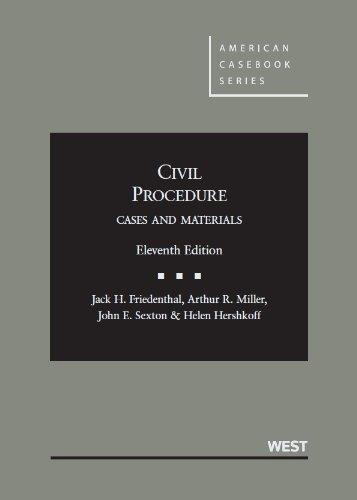4. In their opinions in Hanson, the Chief Justice and Justice Black agreed that the question whether
Question:
4. In their opinions in Hanson, the Chief Justice and Justice Black agreed that the question whether a court may apply its own law to a controversy is to be decided by a standard that differs from that used to decide the question whether the court can adjudicate the controversy at all. That is, the constitutional power to apply local law is of a different dimension from the constitutional power to assert jurisdiction. In ALLSTATE INSURANCE CO. v. HAGUE, 449 U.S. 302, 312–13, 101 S.Ct. 633, 640, 66 L.Ed.2d 521, 531 (1981), the plurality opinion held that “for a State’s substantive law to be selected in a constitutionally permissible manner, that State must have a significant contact or significant aggregation of contacts, creating state interests, such that choice of its law is neither arbitrary nor fundamentally unfair.” Under this test, the plurality upheld Minnesota’s decision to apply its own law in an action by a former Wisconsin resident who moved to Minnesota just prior to filing suit to collect proceeds under an automobile insurance policy made in Wisconsin covering vehicles owned by a Wisconsin resident who had been killed in an accident in Wisconsin. After Hague, it seems clear that the Due Process Clause allows states extraordinary latitude in developing and applying choice-of-law rules. The due process restrictions on state jurisdiction are considerably greater than those on choice of law. What is the rationale for this distinction?
Step by Step Answer:

Civil Procedure Cases And Materials
ISBN: 9780314280169
11th Edition
Authors: Jack Friedenthal, Arthur Miller, John Sexton, Helen Hershkoff






